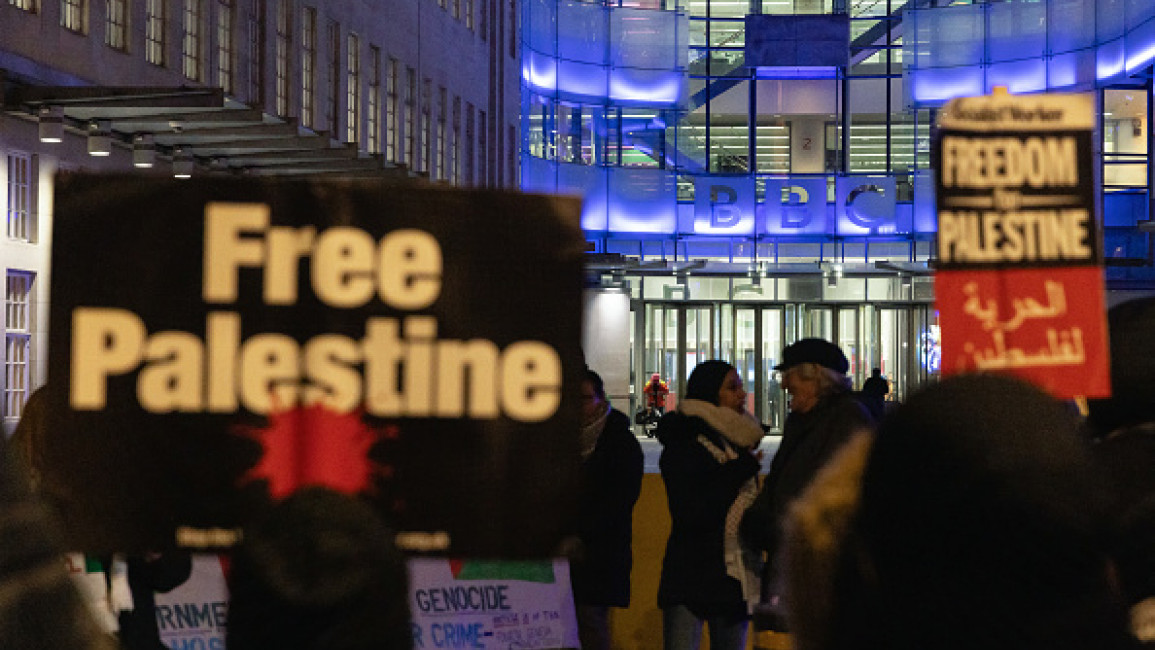International broadcasters demand Israel and Egypt allow media Gaza access
A group of over 50 broadcast journalists has demanded Israel and Egypt allow the media access to the besieged Gaza Strip, as the war there enters its fifth month with over 29,950 Palestinians killed, mostly women and children.
An open letter, signed by journalists from international news organisations including Sky News, BBC, ITV, Channel 4, CNN, ABC, NBC, and CBS, emphasised the need for protection for Gaza-based journalists and the ability for foreign media to report from the enclave.
Among the 55 journalists who signed the letter were Sky News’ Alex Crawford, the BBC’s Clive Myrie, NBC’s Hala Gorani, Channel 4’s Krishnan Guru-Murthy, and CNN’s Christiane Amanpour.
The letter, sent to Israeli and Egyptian embassies, said: "Almost five months into the war in Gaza, foreign reporters are still being denied access to the territory, outside of the rare and escorted trips with the Israeli military.
"We urge the governments of Israel and Egypt to allow free and unfettered access to Gaza for all foreign media. We call on the government of Israel to openly state its permission for international journalists to operate in Gaza and for the Egyptian authorities to allow international journalists access to the Rafah Crossing.
"There is intense global interest in the events in Gaza and for now the only reporting has come from journalists who were already based there.
"It's vital that local journalists' safety is respected and that their efforts are bolstered by the journalism of members of the international media.
"The need for comprehensive on-the-ground reporting of the conflict is imperative.
"The risks of conflict reporting are well understood by our organisations who have decades of experience of reporting in war-zones around the world and in previous wars in Gaza."
The letter pointed out that journalists had been granted rare access to the Palestinian enclave when given permission and supervision by the Israeli armed forces but were required to have all footage recorded from the enclave approved by Israeli army officials before it was broadcast.
CNN and NBC were among the broadcasters that allowed their journalists to embed with the Israeli military, and for their reports to submit to Israeli censorship and supervision.
In November, CNN journalist Fareed Zakaria reported that journalists embedded with the Israeli military had been subjected to specific "terms".
"As a condition to enter Gaza under IDF [Israeli military] escort, outlets have to submit all materials and footage to the Israeli military for review prior to publication," the CNN host said.
"CNN has agreed to these terms in order to provide a limited window into Israel’s operations in Gaza."
NBC claimed on the other hand that it does not send the final story to the military censor for review.
Journalists need access to Gaza to report what’s happening - and I’m happy to be among the signatories of this letter. https://t.co/7zf6XJxBJN
— Krishnan Guru-Murthy (@krishgm) February 28, 2024
However, CNN chief correspondent Clarissa Ward was the first foreign journalist to independently report on Israel’s war on Gaza, during her visit to a UAE-operated field hospital in southern Gaza.
The Committee to Protect Journalists (CPJ) also noted various incidents of restrictions on foreign or Palestinian reporting by the Israeli government.
This comes as 88 journalists and media workers have been killed by Israeli assault in Gaza, including 83 Palestinians two Israelis and three Lebanese, although Palestinian figures are much higher.
The organisation has since warned that the conflict has severely affected media workers and journalists in Gaza since 7 October stating that the casualty toll has shown the "deadliest period for journalists since CPJ began gathering data in 1992".


![President Pezeshkian has denounced Israel's attacks on Lebanon [Getty]](/sites/default/files/styles/image_684x385/public/2173482924.jpeg?h=a5f2f23a&itok=q3evVtko)



 Follow the Middle East's top stories in English at The New Arab on Google News
Follow the Middle East's top stories in English at The New Arab on Google News


